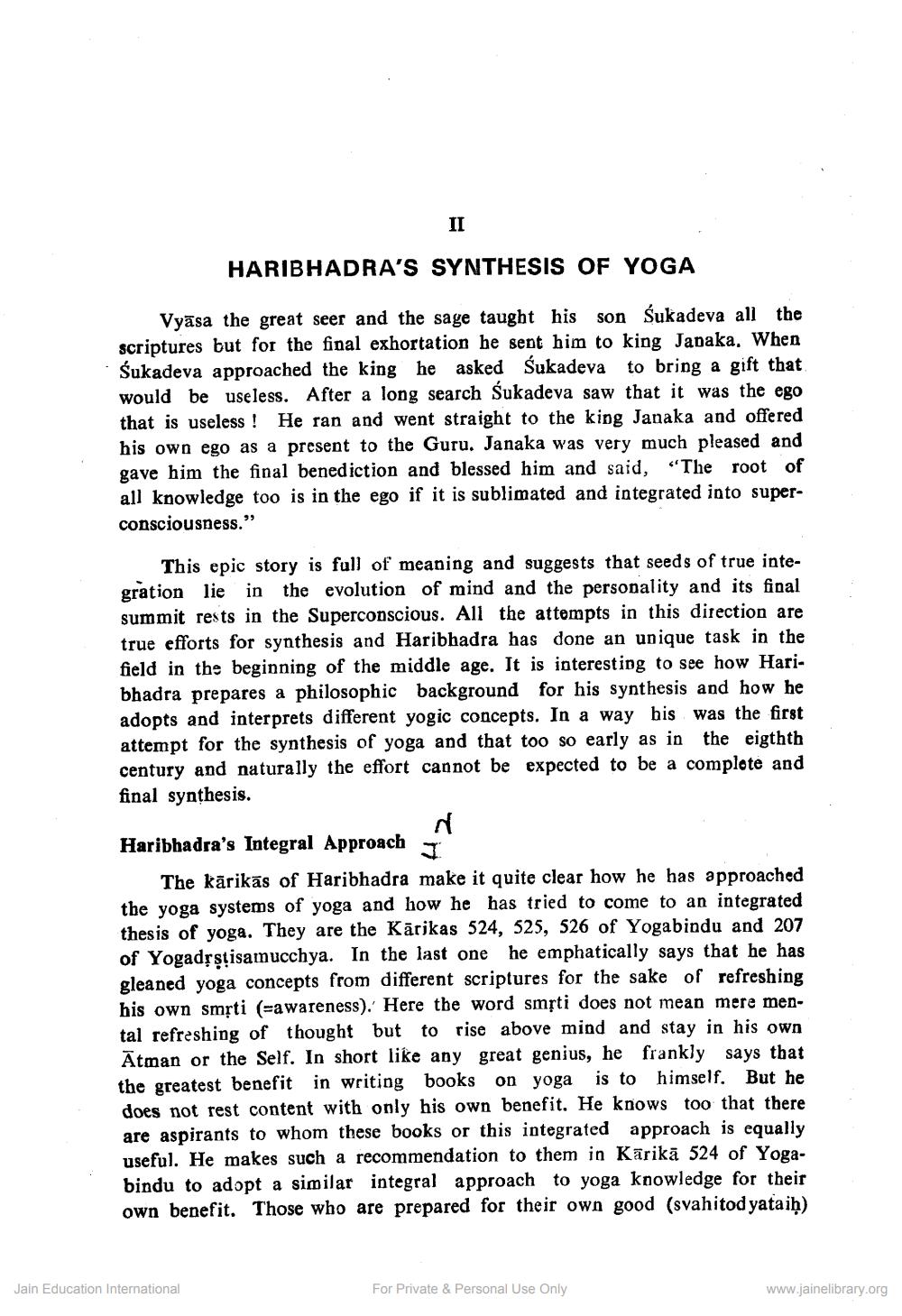________________
HARIBHADRA'S SYNTHESIS OF YOGA
Vyasa the great seer and the sage taught his son Sukadeva all the scriptures but for the final exhortation he sent him to king Janaka. When Śukadeva approached the king he asked Sukadeva to bring a gift that. would be useless. After a long search Sukadeva saw that it was the ego that is useless ! He ran and went straight to the king Janaka and offered his own ego as a present to the Guru. Janaka was very much pleased and root of gave him the final benediction and blessed him and said, "The all knowledge too is in the ego if it is sublimated and integrated into superconsciousness."
II
This epic story is full of meaning and suggests that seeds of true integration lie in the evolution of mind and the personality and its final summit rests in the Superconscious. All the attempts in this direction are true efforts for synthesis and Haribhadra has done an unique task in the field in the beginning of the middle age. It is interesting to see how Haribhadra prepares a philosophic background for his synthesis and how he adopts and interprets different yogic concepts. In a way his was the first attempt for the synthesis of yoga and that too so early as in century and naturally the effort cannot be expected to be a complete and final synthesis.
the eigthth
Jain Education International
d
Haribhadra's Integral Approach
The karikas of Haribhadra make it quite clear how he has approached the yoga systems of yoga and how he has tried to come to an integrated thesis of yoga. They are the Karikas 524, 525, 526 of Yogabindu and 207 of Yogadṛṣṭisamucchya. In the last one he emphatically says that he has gleaned yoga concepts from different scriptures for the sake of refreshing his own smrti (-awareness). Here the word smrti does not mean mere mental refreshing of thought but to rise above mind and stay in his own Atman or the Self. In short like any great genius, he frankly says that on yoga is to himself. But he the greatest benefit in writing books does not rest content with only his own benefit. He knows too that there are aspirants to whom these books or this integrated approach is equally useful. He makes such a recommendation to them in Kärikā 524 of Yogabindu to adopt a similar integral approach to yoga knowledge for their own benefit. Those who are prepared for their own good (svahitod yataiḥ)
ゴ
For Private & Personal Use Only
www.jainelibrary.org




